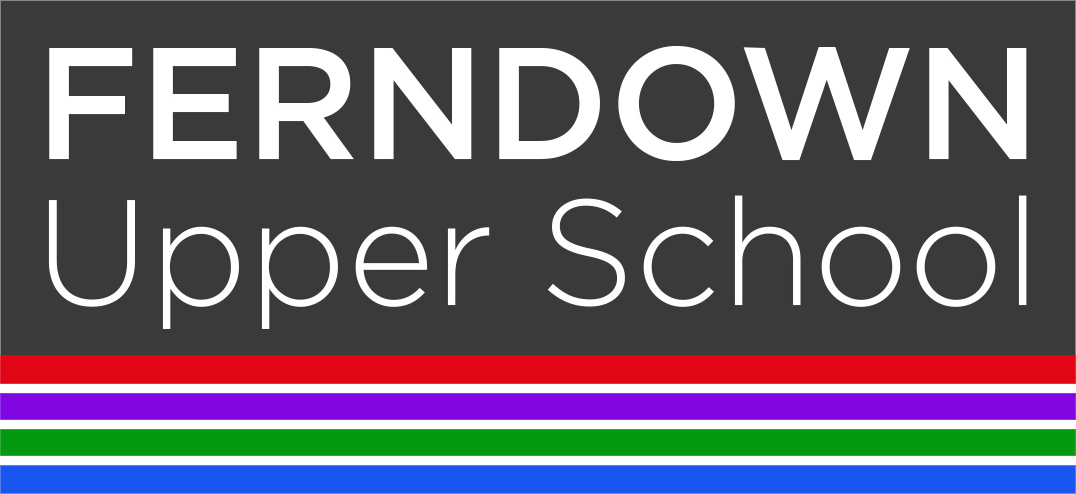ETHICS, PHILOSOPHY and BELIEF:
RELIGIOUS STUDIES GCSE
Examining Board AQA
Reasons For Studying This Subject:
Religious Studies is a valuable, challenging and relevant subject because:
(a) It examines moral issues in the 21st Century and encourages you not only to develop and express your own opinions and beliefs, but also to value those of others. Those who plan to enter careers which offer a service to the public, or involve working closely with people, will find it a useful qualification. Examples are: nursing, medicine, social work, teaching, the police and the armed forces.
(b) It develops invaluable skills for those interested in careers in Law, Journalism and Management. These are an ability to deal with abstract concepts, the competent handling of a variety of arguments, including their analysis and evaluation, and finally an ability to reach an informed decision.
You do not have to be a Christian or hold any religious beliefs. You must be open-minded and willing to discuss issues. Good literacy skills are essential. Religious Studies is as academically demanding as any other subject. It is usual for Religious Studies to be accepted by most major employers.
What You Will Be Studying:
Modules 1 – includes the study of two religions: Christianity and Judaism which will examine the beliefs and practices of both religions. Students will explore the teachings of the faith communities and will hopefully have the opportunity to meet with members of the faith communities. Topics include the ‘Problem of Evil’ and ‘Religious Festivals’.
Module 2 – Thematic studies (religion and ethics in the modern world) includes a study of contemporary issues e.g. prejudice and discrimination, crime and punishment, human rights, peace and conflict, humanism, abortion and euthanasia.
In both modules you will consider a variety of different opinions and beliefs, including both religious and non-religious responses. You will need to evaluate these responses and form your own conclusions. This study is a sound foundation for the A Level course, as it introduces students to the philosophical skills of logical thinking and critical analysis.
How You Will Learn:
You will be involved in discussions, role plays, debates, research, presentations and an examination of a variety of sources, including newspapers, government reports, television programmes, videos, statements of various religious leaders and visiting speakers, visits to places of worship. You will be expected to work in groups and individually at other times.
How You Will Be Assessed:
2 examination papers;
Module 1 = 1 hour 45 minutes paper
Module 2 = 1 hour 45 minutes paper
No coursework / controlled assessment.
Contact: Mrs Goldbey – Head of Ethics & Philosophy
Curriculum Content of each academic year
Year 9 | |
Course | Content |
KS3 Locally agreed syllabus | Capital Punishment Philosophy Old Testament Characters
Introduction to the GCSE from June |
How its assessed: | End of topic GCSE style assessments |
Year 10 | |
Course/ Exam Board | Content |
AQA GCSE Religious Studies Christianity & Judaism | Christian Beliefs Christian Practices Jewish Beliefs & Teachings Jewish Practices Theme B: Religion & Life |
How its assessed: | End of Topic GCSE exam questions |
Year 11 | |
Course/ Exam Board | Content |
AQA GCSE Religious Studies Christianity & Judaism | Theme D: War, Peace & Justice Theme F: Human Rights Theme E: Crime & Punishment |
How its assessed: | End of Topic GCSE exam questions |
Year 12 | |
Course/ Exam Board | Content |
OCR A level Religious Studies Philosophy, Ethics & Christian Belief | Plato, Aristotle, Soul / mind / body, Problem of evil, Religious experience, Teleological Argument, Cosmological Argument, Ontological argument, Natural Law, Situation Ethics, Kantian Ethics, Utilitarianism, Euthanasia, Business Ethics, Augustine’s teaching on human nature, Death & after, Knowledge of God’s existence, Jesus, Christian moral principles, Christian moral action
|
How its assessed: | End of topic essays written. Some under timed conditions, others as homework tasks. |
Year 13 | |
Course/ Exam Board | Content |
OCR A level Religious Studies Philosophy, Ethics & Christian Belief | Religious Language – symbol, analogy, negative, Religious Language – 20th century, Nature of God, Meta-ethics, Conscience, Sexual Ethics, Religious pluralism & theology, Religious pluralism & society, Gender & society, Gender & theology, Challenge of secularism, Liberation theology & Marx
|
How its assessed: | End of topic essays written under timed conditions. |
Careers In Ethics & Philosophy
As an Ethics student, you will have gained skills highly valued by employers, such as analytical and critical reasoning. Students develop the ability to empathise and reflect on their own and others behaviour. Oral and written communication skills are developed as we as the ability to evaluate different views. Studying Ethics has enabled students to go on to a wide range of careers, including law, medicine, the public sector, business management, and journalism as well as the Armed Forces. The time has passed where it was believed all you could do was be a Vicar! The challenge now is what can’t you do with a qualification in Religious Studies, as at the heart of the subject is the development of excellent interpersonal skills which are vital in today’s world.
Labour Market Information – LMI
It is really useful to look at the labour market when considering a career related to Ethics. Many sectors related to Ethics are areas of growth in terms of employment opportunities. Many students who study Ethics go on to work in health care. The NHS is the largest employer in the country. Also within the legal profession the workforce is projected to grow by 5.7% over the period to 2027, creating 3,700 jobs. In the same period, 56.1% of the workforce is projected to retire, creating 36,000 job openings.
The LMI for All portal provides high quality, reliable LMI information – see link below: https://www.lmiforall.org.uk/
Pathways Example Post 16 Routes – Level 3 A Level
- A-Level Religious Studies, Government and Politics, Law, Philosophy, Sociology, Critical Thinking.
Pathways Example Post 16 – Apprenticeship Ideas
- Social Care Worker
- Community Development Worker
- Community Assistant
- Pastoral Customer Service
- Governance & Religious Education Administration
Degree Ideas
- Theology
- Pastoral Care Pastoral Theology
- Pastoral Ministry
- Chaplaincy
- Philosophy

